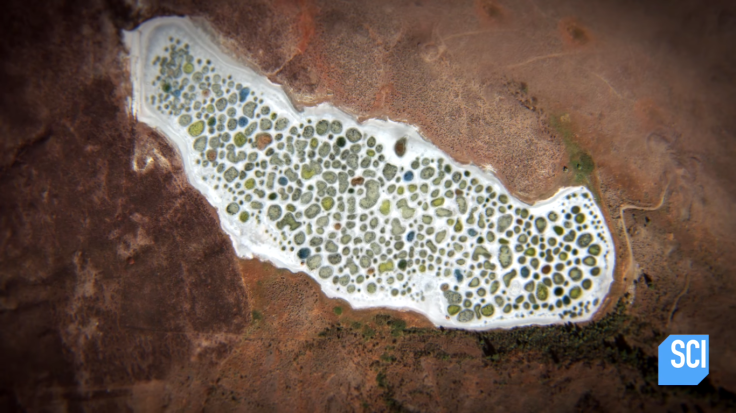Extreme life forms in ancient Canadian lake could hint at life on Mars
The Spotted Lake has different pools of concentrated salts and brine that is locally believed to have healing properties.

A strange lake in British Columbia, Canada, which is believed by locals to have healing properties has been found to have conditions similar to that of Mars. The micro organic life found in this lake could be the type of life that could exist on Mars.
Called the Spotted Lake, it looks like a large body of water with hundreds of individual pools inside it. They are coloured differently and according to legend, they are believed to each have different medicinal qualities. While those claims are yet to be medically proven, what stands out about this lake is that it has the highest concentration of naturally occurring sulphates seen anywhere on the Earth, reports the Mirror.
Researchers at The Science Channel have said that the lake looks like a "chunk of Mars has somehow broken off and travelled 33 million miles". This has led scientists to believe that this Mars-like lake could possibly have Mars-like life. "Analysis of water from Spotted Lake reveals that organisms are indeed living in the pools. It's like Mars has come to Earth, and in these weird holes are clues to life on the Red Planet."
This lake also is a locked system with no outflows, or water flowing away from it. The only way water ever leaves the Spotted Lake is through evaporation and this leaves behind concentrated pools of salt. Salts and brine have been deposited in various places and different concentrations, which can be seen from above, giving the lake its spotted appearance.
Microbial life was found in even such extreme conditions. This has led researchers to draw parallels to Mars' lakes and pools. Scientists believe that life on other planets is likely to be in the form of microorganisms and not intelligent life. In fact, Search for Extraterrestrial Intelligence (SETI) Institute has even released a list of places in the solar system that could hold microscopic life.
Mars is one of those places, and Nasa's Curiosity rover found boron, a chemical that is considered to be a "building block" of life in a Martian crater. One of the issues that scientists have to grapple with is that life as humans know it is carbon-based, but other planets have atmospheres that are made up of various gases and could support life that is completely unrecognisable to humans.





















